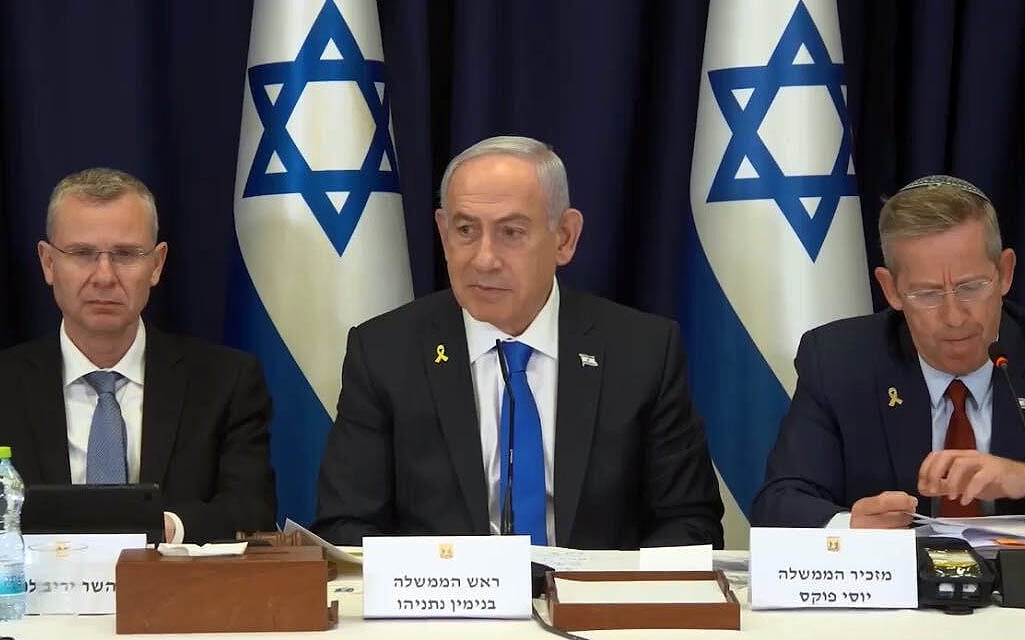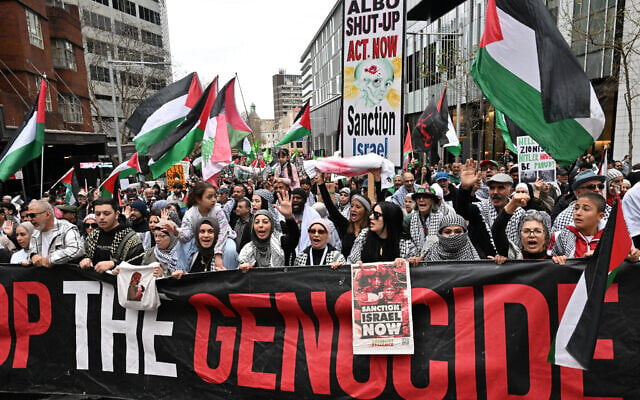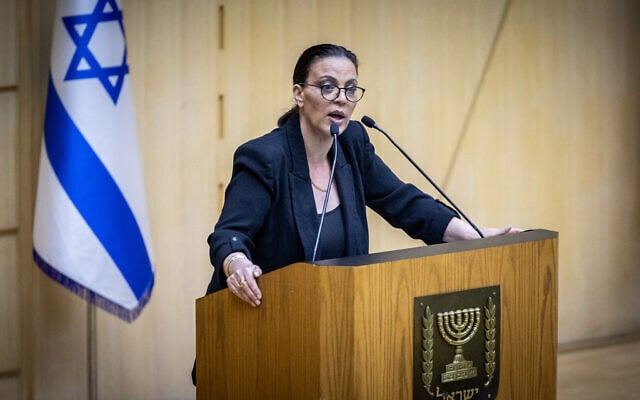


Amid persistent and growing international condemnation of Israel’s war in Gaza, Prime Minister Benjamin Netanyahu said Sunday he is “aware of the price we are paying in the diplomatic and public relations theater.”
Speaking at the start of the weekly cabinet meeting in Jerusalem, Netanyahu said the best way to deal with the challenge is to “establish new mechanisms.”
Despite that recommendation, a Foreign Ministry official reported that the cabinet postponed its planned discussion of a new public diplomacy unit until next week. The unit, to be housed in the Foreign Ministry, would be tasked with countering anti-Israel messaging.
The delay occurred alongside a disagreement between Netanyahu and Foreign Minister Gideon Sa’ar over how the unit will fit into existing government operations, another official said.
Netanyahu also said Sunday that ending the war as quickly as possible with a victory will help address the challenge — but that he will always prioritize victory over public relations.
“If I have to choose between victory over our enemies and bad propaganda against us, I choose victory over our enemies rather than the opposite,” he said. “I do not want articles saying that we were defeated by our enemies but received good obituaries in the world press. I choose victory.”
Netanyahu’s comments came days after US President Donald Trump said in an interview that Israel “may be winning the [Gaza] war, but they’re not winning the world of public relations.”
Israel’s public diplomacy apparatus has faced difficulties since the very beginning of the war, when then-public diplomacy minister Galit Distel Atbaryan quit her job five days after Hamas’s October 7, 2023, massacre, which saw thousands of terrorists burst across the border, kill some 1,200 people and seize 251 hostages, mostly civilians, many amid acts of brutality and sexual assault.
Israel’s retaliatory offensive in Gaza has since killed more than 64,000 people, according to the Strip’s Hamas-run health ministry. The figure, which cannot be independently verified, does not distinguish between civilians and fighters. Israel says it has killed over 22,000 combatants in battle as of August and another 1,600 terrorists inside Israel during the October 7 onslaught.

Many countries, including allies of Israel, have grown increasingly critical of the offensive in Gaza as the death toll there has swelled and the humanitarian crisis in the Strip has intensified, with a UN hunger monitor last week declaring famine in parts of the Strip. A number of countries and human rights organizations have accused Israel of genocide, and mass anti-Israel protests have taken place worldwide.
Israel has denied that there is famine in Gaza and has accused Hamas of looting deliveries of humanitarian aid to the Strip. It has likewise adamantly rejected the charge of genocide and blamed Hamas for civilian deaths in Gaza, saying the terror group uses noncombatants as human shields and embeds itself in civilian infrastructure, including hospitals and schools.
Former and current officials in the Prime Minister’s Office, the Foreign Ministry, and the IDF’s Spokesperson’s Unit acknowledged to The Times of Israel last month that the breakdown in Israel’s image results not only from hostile actors, a complex war zone, and government policy, but also from internal dysfunction within the public diplomacy apparatus.
Current officials, including spokespeople, all declined to speak on the record about the issue, a standard practice reflecting the state of media engagement from the Israeli government.
Nava Freiberg contributed to this report.


